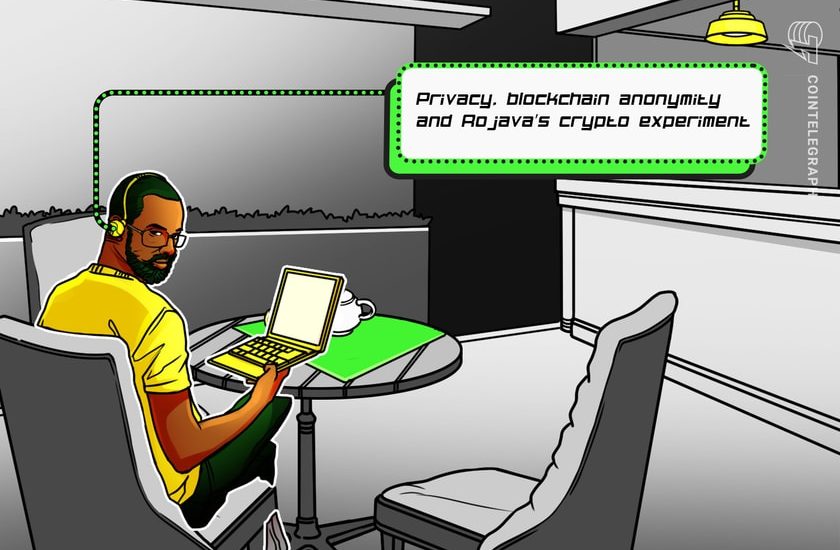- April 26, 2023
- Posted by: admin
- Category: BitCoin, Blockchain, Cryptocurrency, Investments


The Agenda podcast chats with DarkFi to explore how Rojava is experimenting with cryptocurrency and why encryption and anonymous spaces are critical for building self-autonomy.
In the mid-2010s, the Islamic State was rapidly advancing through Iraq and Syria, conquering territory and terrifying residents. However, one group of Kurds in Northern Syria representing the de facto autonomous Democratic Federation of Northern Syria, in an area known as Rojava, successfully fought back the Islamic State and captured the attention of the world.
Many people from around the world went to Rojava to fight, but one lesser-known story made ripples in the crypto world: Some volunteers traveled there to help build blockchain and technological literacy and experiment with the potential of cryptocurrencies like Bitcoin (BTC) to serve as a tool for revolutionary change. After all, Rojava promotes decentralization, autonomy and self-empowerment — sound familiar?
On Episode 10 of The Agenda, hosts Ray Salmond and Jonathan DeYoung were joined by Rachel Rose-O’Leary and Kato, who discussed their work volunteering in Rojava and how those experiences inspired and relate to their current work developing DarkFi, an anonymous blockchain protocol.

Rojava’s blockchain and crypto experiment
O’Leary traveled to Rojava in late 2018 after feeling disillusioned with the crypto space and how far it had seemingly strayed from its early cypherpunk roots. “I was convinced at that time that Rojava was a place where the ideals of crypto were being fielded and tested,” she said. O’Leary was inspired by Amir Taaki, an early Bitcoin pioneer who himself traveled to the region to volunteer.
Meanwhile, Kato first discovered crypto while already in Rojava. “I basically got interested in crypto and in privacy technologies because of the actual need of the people,” he shared. “I saw the actual use cases, and a lot of people at that time already around the world started using crypto for practical means, like for sending money around.”
“If you don’t have a working banking system or you don’t have access, which is true for most of the world, it’s much more efficient. And also especially if you’re facing persecution and political oppression. And often, it’s actually the only way that you have.”
O’Leary spent much of her time “volunteering very much with building educational infrastructure, especially in terms of technology” — including introducing people to crypto and blockchain. “It’s a very interesting environment for crypto because of the fact that there are no banks,” she shared. “Also, there is no state. So, cryptocurrency is a really interesting like financial paradigm for that kind of a context.”
Related: ‘Privacy has become a taboo,’ says crypto-anarchist project DarkFi
When asked about whether crypto education is continuing in Rojava in 2023, Kato responded, “There are technical academies and education centers in Rojava, and even new ones have been opened over the last years.” However, the work remains difficult, as “the war is a huge pressure, not just on technical education but on all social fields.”
Privacy is paramount
Both Kato and O’Leary now work on DarkFi, an anonymous layer-1 blockchain protocol. For O’Leary, privacy is essential for the ability of communities to operate freely and autonomously, and the anonymity provided by encryption represents a 21st-century tool for people to express themselves fully:
“If people are under constant surveillance and monitoring by an enormous surveillance apparatus and a surveillance state, then they’re being prohibited from exercising […] their moral and political society.”
When asked about the future of privacy and whether it’s possible to break free from the mass surveillance paradigm, Kato said that “we’re going to have that struggle for a long time, and for much longer than decades,” adding: “It’s maybe the most fundamental struggle of human society.”
But is there light at the end of the tunnel? Kato believes that through decentralized tools like blockchain, “we have this technology to be able to develop our own financial and economic systems that are actually democratically managed by the people who use them according to what they actually need.”
“There are moments in history where technology reconfigures the nature of power, and the printing press is a very common example,” added O’Leary. “I think we have a similar situation now happening in cryptocurrency, where it’s hard to see now because we’re just at the onset of it. But the basis of power is in the process of being reconfigured by virtue of these technologies.”
To hear more from Kato and O’Leary’s conversation with The Agenda — including their takes on venture capital funding, decentralized finance, and solarpunk vs. lunarpunk — listen to the full episode on Cointelegraph’s Podcasts page, Apple Podcasts or Spotify. And don’t forget to check out Cointelegraph’s full lineup of other shows!
Magazine: Bitcoin in Senegal: Why is this African country using BTC?
This article is for general information purposes and is not intended to be and should not be taken as legal or investment advice. The views, thoughts, and opinions expressed here are the author’s alone and do not necessarily reflect or represent the views and opinions of Cointelegraph.
